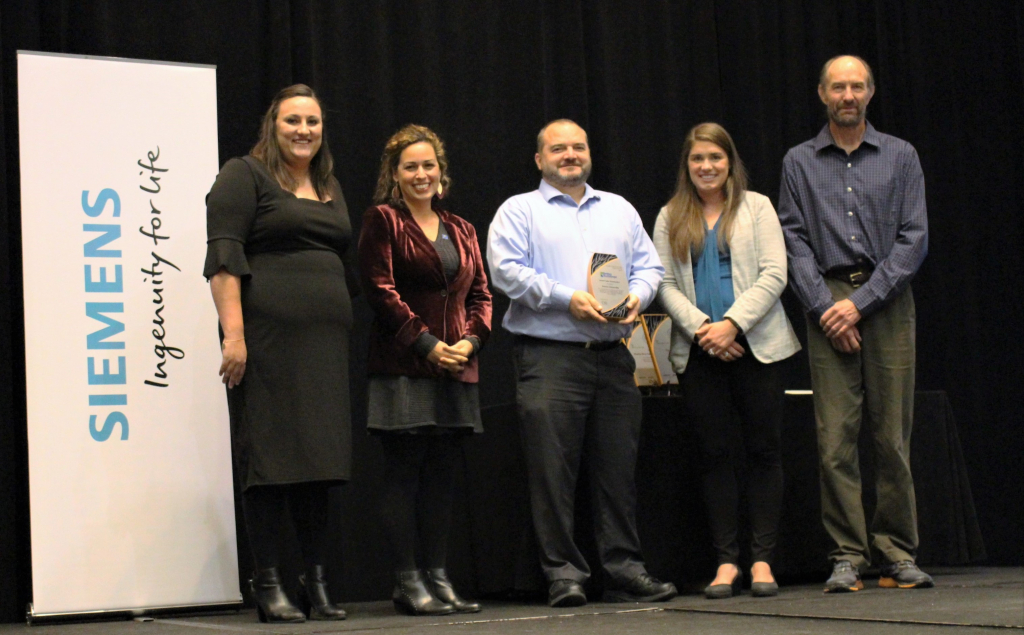By Jamie Lutz, OSI Intern
According to the U.S. Department of Energy (DOE), a typical laboratory is 3-to-4 times more energy intensive than an average commercial building and can account for up to 70% of a campus’s energy footprint. This presents huge potential for energy reduction strategies in lab spaces on campus.
In order to lead the way toward improving energy efficiency in laboratory buildings, Emory University joined the DOE’s Smart Labs Accelerator program in April 2018, alongside seven other universities nationwide. Through the Smart Labs Accelerator, the DOE works with universities, federal agencies, national laboratories, hospitals, and corporations to advance strategies that rapidly improve energy efficiency in laboratory buildings.
Accelerator Partners work together to develop standardized approaches to overcoming common barriers to energy efficiency in laboratories. Core aspects of participation in the Smart Labs program include setting targets to improve energy efficiency across an organization’s lab buildings by at least 20% in 10 years and committing to share effective strategies (backed up by performance data) for reducing laboratory energy use.
As an Accelerator Partner, Emory works directly with the DOE and other participating groups to advance strategies that rapidly improve energy efficiency in laboratory buildings. Emory committed to establishing 10-year energy efficiency targets across its lab buildings and developing a comprehensive road map to achieving those targets.
Campus Services and the Environmental Health and Safety Office identified seven lab buildings with the highest opportunities to save energy while maintaining a safe and productive workspace. Once necessary adjustments are complete, the University is projecting to save an average of 22.2% on energy use across these seven buildings.
Emory has campus-wide Sustainability strategic goals that include both a 50% reduction in energy use per square foot (Energy Use Intensity, or EUI) and a 25% reduction in total energy consumption by 2025. Partnership in the Smart Labs program pushes Emory toward these goals by targeting energy-intensive laboratory buildings. Emory will focus on HVAC optimization by using technology such as variable frequency drives where available. The University is also conducting careful evaluations of unoccupied spaces within these lab buildings to implement smart controls that cut back HVAC use and reduce or cut off lighting.
Emory has already shown remarkable progress toward the targets it set when joining the Smart Labs program. The first building on campus to implement the Smart Labs program was the Health Sciences Research Building (HSRB). “The [Smart Labs] program was to show 5% savings in one building in the first two years and 20% in all buildings over the next 10,” says Chris Fox, of Emory’s Engineering Services. “We implemented [the program] in one building and saw 7% savings in one year.” This 7% improvement in energy use per square foot at the HSRB saved the University roughly $51,000 per month in energy costs, all by implementing no- and low-cost energy-saving measures, such as reprogramming the air change rates in unoccupied rooms and replacing non-functioning occupancy sensors. The savings in both cost and energy use are expected to increase substantially as the Smart Labs program advances and expands to other buildings on campus.
At the International Institute for Sustainable Laboratories (I2SL) conference last October, Emory was among the winners of the Department of Energy’s Accelerating Smart Labs Award for Program Development and Implementation. Emory received this award for having developed a comprehensive strategy based on the goals of the Smart Labs program, such as identifying lab energy conservation measures, estimating savings, seeking funding to expand the program, and starting to implement projects in seven of its lab buildings. Emory has also led the development of guidance on using occupancy sensors in lab spaces and worked with another Smart Labs Accelerator partner to develop a lab review checklist that identifies gaps and opportunities in lab spaces.
This award recognizes Emory’s leadership in the field of energy efficiency on college campuses. By adding another element to the University’s robust set of strategies for energy efficiency, the Smart Labs Accelerator program continues to propel Emory towards its ambitious University-wide energy reduction goals.
Do you have suggestions or comments about Emory’s Smart Labs program or energy efficiency goals? Email emorysustainability@gmail.com!

